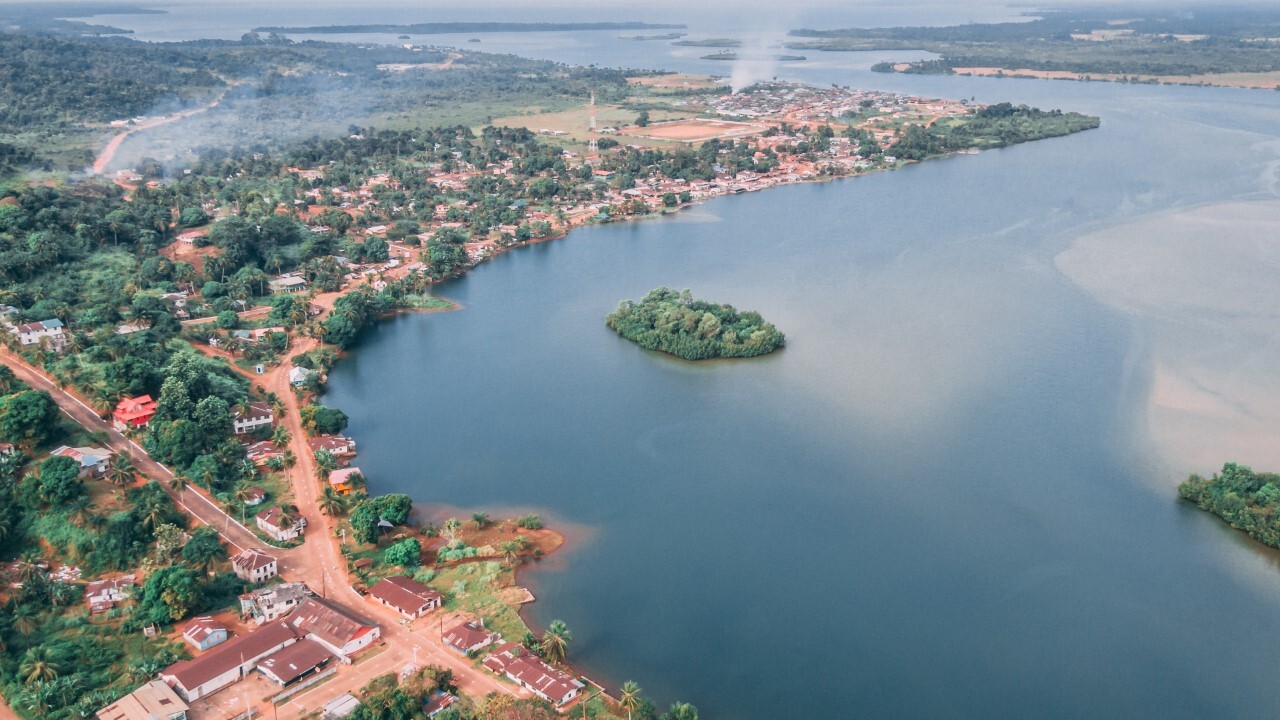
Liberia, a small West African nation, holds a rich history and vibrant culture. Did you know Liberia was founded by freed American slaves in 1822? This unique origin story shapes much of its identity today. Monrovia, the capital, is named after U.S. President James Monroe. Liberia boasts Africa's oldest republic, declaring independence in 1847. The country’s flag resembles the American flag, symbolizing its historical ties. English is the official language, making communication easier for visitors. Liberia is home to diverse ethnic groups, each contributing to its cultural tapestry. From lush rainforests to stunning coastlines, Liberia offers breathtaking landscapes. Ready to learn more? Let's dive into 20 fascinating facts about Liberia!
Key Takeaways:
- Liberia, a country founded by freed American slaves, has a rich history, diverse culture, and stunning natural beauty. It's known for its ties to the United States, traditional music, and lush rainforests.
- Liberia's economy relies on rubber, iron ore, and agriculture, while its political landscape has seen the first female African head of state and challenges from civil wars. The country is committed to international cooperation and development.
Liberia's Unique History
Liberia, a country on the West African coast, has a rich and unique history. It stands out for several reasons, from its founding to its cultural heritage.
-
Liberia was founded by freed American slaves in 1822. The American Colonization Society helped establish the country as a place for freed African Americans to settle.
-
The capital city, Monrovia, is named after James Monroe, the fifth President of the United States. Monroe supported the colonization effort.
-
Liberia declared its independence on July 26, 1847, making it the first African republic to proclaim independence.
-
The Liberian flag closely resembles the American flag. It has 11 stripes and a single star, symbolizing the country's ties to the United States.
Cultural Diversity in Liberia
Liberia is home to a diverse range of ethnic groups and cultures. This diversity is reflected in its languages, traditions, and social practices.
-
There are over 20 ethnic groups in Liberia. The largest are the Kpelle, Bassa, Gio, and Mano.
-
English is the official language, but over 30 indigenous languages are spoken throughout the country.
-
Traditional Liberian music includes genres like Highlife and Hipco. Highlife combines African rhythms with Western instruments, while Hipco is a form of hip-hop in the local Koloqua dialect.
-
Poro and Sande are traditional secret societies in Liberia. They play significant roles in social and cultural life, including rites of passage and community leadership.
Liberia's Natural Beauty
Liberia boasts stunning landscapes, from lush rainforests to pristine beaches. Its natural beauty is a significant draw for visitors and a source of national pride.
-
Sapo National Park is Liberia's largest protected area. It is home to diverse wildlife, including pygmy hippos, forest elephants, and numerous bird species.
-
Liberia has a 350-mile coastline along the Atlantic Ocean. Beaches like Robertsport are popular for surfing and relaxation.
-
The country is part of the Upper Guinean Forest, a biodiversity hotspot. This forest region is crucial for conservation efforts.
-
Mount Nimba, on the border with Guinea and Côte d'Ivoire, is a UNESCO World Heritage Site. It is known for its unique flora and fauna.
Economic Facts About Liberia
Liberia's economy has faced challenges but also shows potential for growth. Understanding its economic landscape provides insight into the country's development.
-
Rubber is one of Liberia's main exports. The Firestone Plantation, established in 1926, is one of the largest rubber plantations in the world.
-
Liberia has significant iron ore deposits. Mining has been a key industry, contributing to the country's economy.
-
Agriculture employs the majority of Liberia's workforce. Key crops include rice, cassava, and palm oil.
-
The Liberian dollar is the official currency, but the US dollar is also widely used in commerce.
Liberia's Political Landscape
Liberia's political history is marked by significant events and figures. Its governance structure and political milestones are essential to understanding the nation.
-
Ellen Johnson Sirleaf became Africa's first elected female head of state in 2005. She served as Liberia's president until 2018.
-
Liberia experienced two civil wars between 1989 and 2003. These conflicts had a profound impact on the country's development and stability.
-
The country operates under a unitary presidential republic system. The president serves as both head of state and government.
-
Liberia is a member of the United Nations, African Union, and Economic Community of West African States (ECOWAS). These memberships reflect its commitment to international cooperation.
Liberia's Unique Story
Liberia's rich history and culture make it a fascinating country. From being Africa's first republic to its unique flag resembling the United States', Liberia stands out. The country’s diverse ethnic groups, languages, and traditions add to its vibrant tapestry. Its natural beauty, with rainforests and stunning coastlines, offers a glimpse into Africa's ecological wealth. Liberia's challenges, like its recovery from civil wars and ongoing economic development, show the resilience of its people.
Understanding Liberia means appreciating its past, present, and future. Whether it's the significance of its capital, Monrovia, named after a U.S. president, or its role in the African Union, Liberia has a unique place in the world. So next time you think about Liberia, remember these facts that highlight its distinct identity and enduring spirit.
Frequently Asked Questions
Was this page helpful?
Our commitment to delivering trustworthy and engaging content is at the heart of what we do. Each fact on our site is contributed by real users like you, bringing a wealth of diverse insights and information. To ensure the highest standards of accuracy and reliability, our dedicated editors meticulously review each submission. This process guarantees that the facts we share are not only fascinating but also credible. Trust in our commitment to quality and authenticity as you explore and learn with us.


